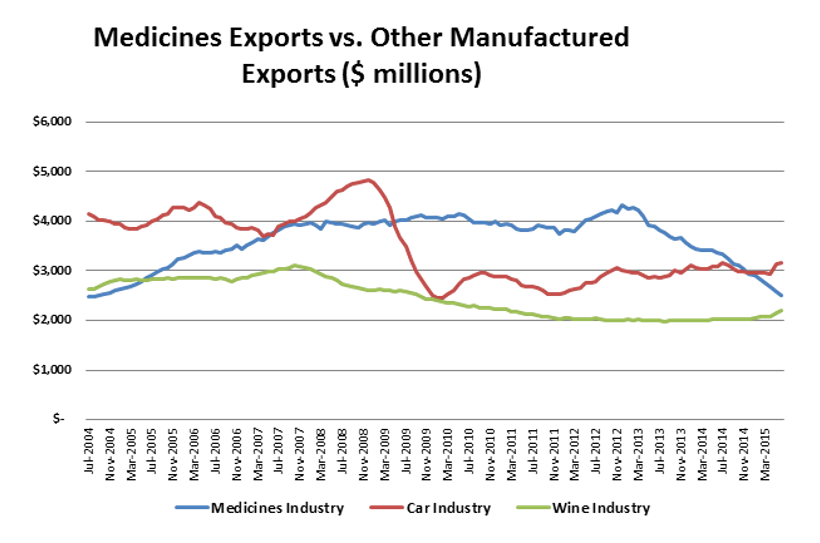Cancer medicines inquiry recommendations are good news for consumers
Medicines Australia is pleased to see the publication of the awaited report from the Senate Inquiry into the Availability of new, innovative and specialist cancer drugs in Australia.
Medicines Australia will take some time to review the report in more detail over the coming days. However, the peak body representing the innovative medicines industry broadly supports the principal recommendations in the report.
In its submission to the Senate Inquiry, Medicines Australia recommended that Government work with industry to develop innovative access models, commit to expert oncology and consumer input as central to the decision making process, and implement system efficiencies to deliver faster access for patients.
Medicines Australia CEO Tim James said, “New, innovative and specialised cancer medicines are a key driver of increases in patient survival, but the waiting time to list cancer medicines on the PBS is taking too long.”
“Australian patients wait six months longer for access to cancer medicines than other types of medicines, and on average 1.6 years from TGA registration to PBS listing. We believe cancer patients, namely the one in two Australians who will develop cancer during their lifetime, deserve better.
“It is promising to see the report recognise that it is time for a thorough examination of options to improve the evaluation, registration and listing processes and speed up access to medicines.”
Mr James says he is also encouraged by the Senators’ backing of Medicines Australia’s call for more consumer and clinician input into the evaluation of new medicines processes.
“Consumers should have a stronger voice in deciding what the system of universal access should fund, as well as providing input to the decision makers about the reimbursement of individual cancer medicines,” Mr James said.
“We also strongly support the Committee’s recommendation to encourage use of parallel TGA-PBAC submissions to accelerate the listing process for innovative cancer treatments.
“The report is confirmation of Medicines Australia’s and other stakeholders long held view that we have a problem with access to cancer and other medicines in Australia.
“Medicines Australia stands ready to help the Parliament and policy makers to implement any recommendations which will improve access for patients.”
Contact:
James Boyce
Phone: 0423 239 265
Email: James.Boyce@medicinesaustralia.com.au
Alexia Vlahos
Phone: (02) 6122 8503
Email: Alexia.Vlahos@medicinesaustralia.com.au


